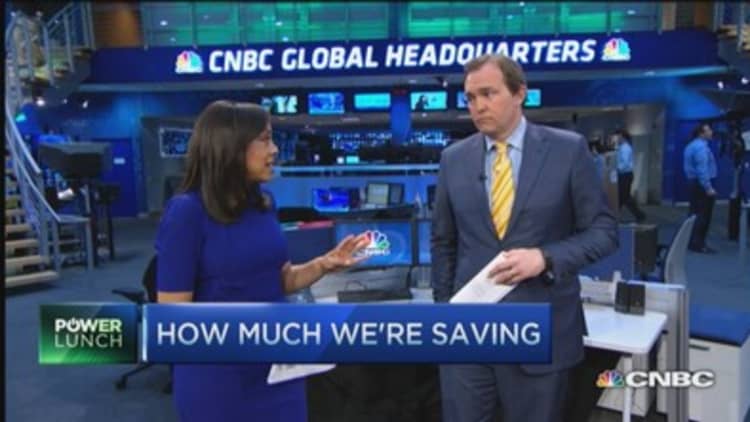More employers are concerned about whether their workers are saving enough ... and not just for retirement.
More than 90 percent of 250 large employers said they want to introduce or expand their financial wellness programs this year, according to a survey by benefits consulting firm Aon Hewitt.
In addition to explaining how to get the most from employee benefits, financial wellness programs focus on helping employees track where their money goes, build emergency funds and cope with financial pressures.
"It's a cultural shift. Financial wellness takes a more holistic approach to an employee's finances," said Megan Yost, head of participant engagement at State Street Global Advisors' defined contribution retirement plans. "It's about reducing financial stress and improving productivity."
There's no question that money problems stress out workers. Nearly 1 in 4 employees say their finances have been a distraction at work, according to accounting firm PwC's 2014 survey of financial wellness programs. And Americans have named money as their top source of stress every year since 2007, when the American Psychological Association started its "Stress in America" report.
Read MoreGen Xers are doing the worst job with money: Survey

Financial wellness doesn't just help workers, however. The Society for Human Resource Management estimates employers can save up to $3 for every dollar spent on such programs.
In a report published in August,the Consumer Financial Protection Bureau encouraged more companies to adopt financial wellness programs because "the workplace is where most Americans make critical decisions about how to allocate their wages to current needs, savings, investing and important life goals."
Employers look to the programs to help reduce everything from employee absenteeism to wage garnishments and retirement plan loans, said Liz Davidson, CEO of Financial Finesse, which offers financial wellness programs to more than 600 large employers. They also look at how the strategies increase participation in employer-sponsored retirement plans, flexible spending accounts and health savings accounts.
"Happy employees boost the bottom line," said Yost from State Street Global Advisors, which recently held a "hack-a-thon" with large employers, including American Express, General Electric and Intuit, to look at how they can increase the effectiveness of their financial wellness programs.
Read More
"Financial wellness has changed so much from the old model of going to listen to a lunchtime speaker and learn about personal finance at work. Now financial wellness is an actual employee benefit," Davidson said. "Financial wellness targets a wider audience than the small percentage of workers who have enough investable assets to max out their retirement plans."
Financial wellness can even trickle down to actually wellness. Financial Finesse found that health-care costs for employees who participated in its financial wellness program dropped by 4.5 percent for one client during a two-year period.
Read More 20s, 30s, 40s and 50s: How to save money at every age
An early adopter was the National Football League Players Association. It implemented its financial wellness program six years ago to help NFL players prepare for a lockout by league owners, which happened in 2011. "We told the players that the lockout was nothing but a fire drill for when the paychecks do finally end," said Dana Hammonds, director of player services and development at the NFLPA. (Not a bad message, given the financial troubles many NFL players have suffered after retiring from the sport.)
Hammonds said the financial wellness program has helped "provide players with leverage during points of negotiation and increase their chances of having successful transitions to their second careers."
Read MoreReady to retire? Maybe not just yet
The association offers an online financial learning center, a phone line for money help and, since last year, a regular assessment of NFL players' financial well-being. In these assessments, NFL players can see how they did compared with the average player in their age group. "Our members are competitive. We wanted to gamify financial wellness. We wanted to show them how they are doing compared with their peers," Hammonds said.
The financial wellness assessments showed that every NFL player wanted to know more about investing and how to handle requests from family and friends asking for money. Rookies were interested in advice on buying health insurance and veteran football players clamored for estate-planning guidance.
"You want to catch people where they are. We took the time to understand our audience and when they would be more apt to receive financial wellness information," Hammonds said. "


